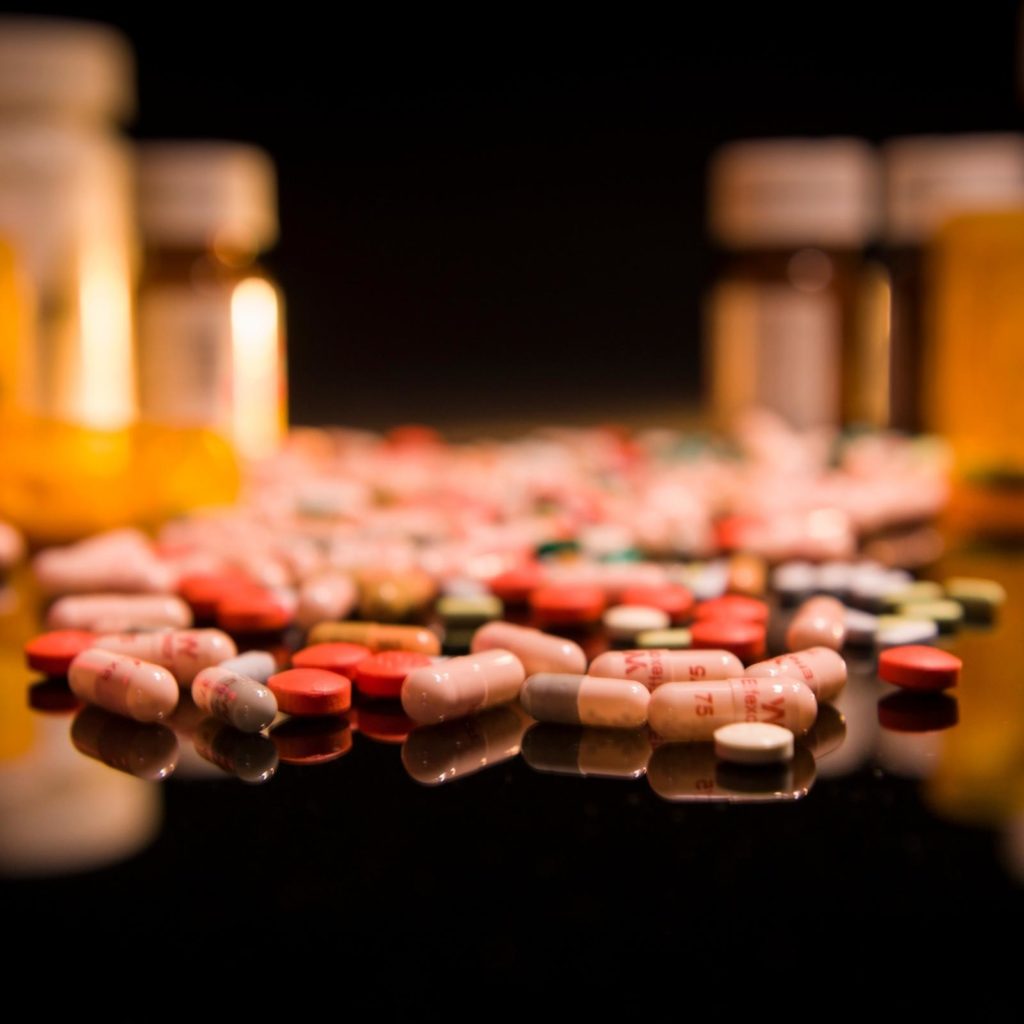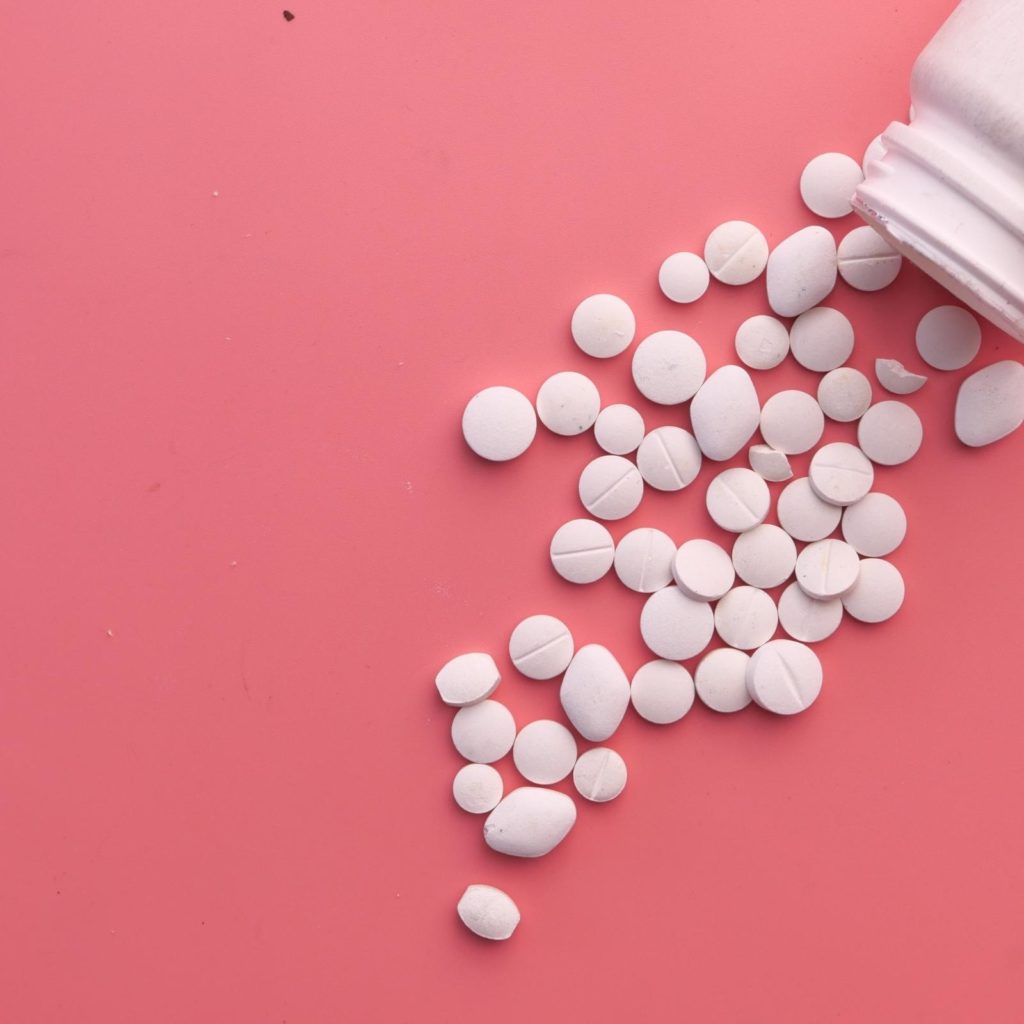Prescription Drug Abuse
Prescription drug addiction is a disease that affects a person’s behavior and brain; this condition represents a huge problem in the US. Prescription drug abuse is a disease that affects a person’s behavior and brain; this condition represents a huge problem in the US.
About 52 million Americans older than 12 have used prescription medications non-medically at some point in their lives. Being addicted to Prescription Drugs is a process that happens slowly.
Some people don’t notice the moment they shift from recreational abuse to intense addiction, but when addiction takes hold, it can be serious. Some people don’t notice the moment at which they shift from recreational abuse to intense addiction, but when addiction takes hold, it can be serious.
Prescription drugs are designed to treat certain medical conditions or ease the discomfort that diseases can bring. For people with medical conditions like asthma or cancer and with mental health conditions like depression or anxiety, prescription medications can mean the difference between a healthy and happy life or an upsetting and painful illness. But some people use prescription medications for reasons that have very little to do with illnesses. These people take prescription medications recreationally, and there are a lot of people just like this in the world.
Skip to:
- Prescription Drug Withdrawal
- Withdrawal Symptoms of Prescription Drugs
- Prescription Drug Timelines of Withdrawal
- Dangers of Prescription Drug Withdrawal
- Factors That Affect Withdrawal Symptoms From Prescription Drugs
- Prescription Drug Detox Treatment
Learn More:
- Prescription Drug Abuse
- How Long Do Prescription Drugs Stay In Your System?
- Mixing Prescription Drugs with Alcohol
- Mixing Lyrica And Alcohol
- Can You Mix Ritalin and Alcohol?
- Soma And Alcohol
- Valium and Alcohol
- Alcohol and Anxiety Meds
- Prescription Pill Detox Program
- 10 Most Abused Prescription Drugs In The US
Prescription Drug Withdrawal
During withdrawal, the body tries to regain its original state before relying on prescription drugs and painkillers to function. However, withdrawal can be a painful process to go through if it is not done safely and properly.
The body reacts so severely during withdrawal because the chemical processes in the brain are disrupted. Stimulants, opiates, and antidepressants interfere with the GABA receptors in your brain. The role of the GABA receptors is to inhibit or reduce the activity of your nerve cells. Therefore, a person who is weaning off of the prescription medication on their own can put themselves in danger if the process is not done with proper medical supervision.
Not every person experiences prescription drug withdrawal in the same way. The kind of Withdrawal Symptoms of Prescription Drugs that a person struggles with depends on:

- The length of the addiction: If prescription drugs and painkillers are taken daily for an extended period, this results in a higher tolerance of the drug, which paves the way for more severe withdrawal symptoms.
- The half-life of the drug: If the prescription drug is fast-acting, the person may experience withdrawal symptoms immediately after the first dose they missed. If it’s slow-acting, the symptoms may be delayed by a couple of days.
- The prescribed dosage: The higher the dose of the prescription drug, the more likely a person is to experience severe withdrawal symptoms.
- Any mental or physical disorders: If a person suffers from a co-occurring disorder, such as depression or anxiety, or a physical condition, such as severe pain, a person’s withdrawal symptoms are likely to be severe as well.

Get Your Life Back
Find Hope & Recovery. Get Safe Comfortable Detox, Addiction Rehab & Dual Diagnosis High-Quality Care.
Hotline(844) 597-1011Withdrawal Symptoms of Prescription Drugs
The most misused and addictive prescription drugs are:
- Opioid painkillers, including oxycodone, morphine, codeine, and fentanyl
- Central nervous system (CNS) depressants, including tranquilizers like benzodiazepines and the anti-anxiety medication alprazolam (commonly known by the brand name Xanax)
- Stimulants like the amphetamines Adderall and Ritalin, which are commonly prescribed for attention deficit hyperactivity disorder (ADHD)
Opioid withdrawal symptoms include:
- Dilated pupils
- Nausea
- Vomiting
- Fatigue
- Sweating
- Muscle and joint aches
- Yawning
- Anxiety
- Irritability
- Shakiness
- Pallor
- Increased heart rate
- Goosebumps
The severity of Withdrawal Symptoms of Prescription Drugs depends mainly on the number of opioids taken per day and on which opioid is taken. Withdrawing from opioid drugs can be done with the help of medications that manage withdrawal symptoms. If you’re taking your medications as directed and are healthy overall, tapering off of them could “theoretically” be done at home. But for those with an opioid use disorder, quitting at home might not address the problem if they need addiction treatment.
Becoming sober is only a small part of treating opioid addiction. Stopping opioids is a requirement for successful treatment, but it is insufficient.
Central nervous system depressant withdrawal symptoms include:
- Seizures
- Shakiness
- Anxiety
- Agitation
- Insomnia
- Overactive reflexes
- Increased heart rate
- High blood pressure
- Fever with sweating
- Hallucinations
According to the National Institute on Drug Abuse, withdrawing from central nervous system depressants can be life-threatening, and it’s best done under medical supervision.
Withdrawal symptoms of prescription stimulants include:
- Fatigue
- Depression
- Sleep problems
The National Institute on Drug Abuse reports that long-term prescription stimulant misuse can also increase the risk of:
- Psychosis
- Anger
- Paranoia
- Heart, nerve, and stomach problems
- Overdose
While opioids cause the most drug overdose deaths in the U.S., the number of prescription stimulant overdoses has rapidly increased.
Get Help. Get Better. Get Your Life Back.
Searching for Accredited Drug and Alcohol Rehab Centers Near You?
Even if you have failed previously and relapsed, or are in the middle of a difficult crisis, we stand ready to support you. Our trusted behavioral health specialists will not give up on you. When you feel ready or just want someone to speak to about therapy alternatives to change your life call us. Even if we cannot assist you, we will lead you to wherever you can get support. There is no obligation. Call our hotline today.
(844) 597-1011Dangers of Prescription Drug Withdrawal
People often fear becoming addicted to medications prescribed for medical conditions, such as painkillers prescribed after surgery. But you can reduce your risk by carefully following your doctor’s instructions on how to take your medication. Prescription drug abuse can happen at any age but commonly begins in teens or young adults.
Risk factors for prescription drug abuse include:
- Past or present addictions to other substances, including alcohol and tobacco
- Family history of substance abuse problems
- Certain pre-existing psychiatric conditions
- Exposure to peer pressure or a social environment where there’s drug use
- Easier access to prescription drugs, such as having prescription medications in the home medicine cabinet
- Lack of knowledge about prescription drugs and their potential harm

Factors That Affect Withdrawal Symptoms From Prescription Drugs
Withdrawal Symptoms of Prescription Drugs, their duration, and severity depend on several factors. Some of these factors will be personal to you.
- The type of prescription drug you are taking
- How long you have been consistently taking the prescription drug
- The dosage and potency of the prescription drug
- Whether you undergo a medical detox or attempt to self-detox
- Your general mental and physical health
- Other medications that you are taking
- Whether you have been mixing prescription drugs with alcohol or other drugs
- Whether you undergo addiction treatment/counseling or attend mutual aid groups to support withdrawal
Undergoing a medical detox and addiction treatment will reduce the severity of the Withdrawal Symptoms of Prescription Drugs and the timeline of withdrawal. It is also proven to vastly increase the success rate.
First-class Facilities & Amenities
World-class High-Quality Addiction & Mental Health Rehabilitation Treatment
Rehab Centers TourRenowned Addiction Centers. Serene Private Facilities. Inpatient rehab programs vary.
Addiction Helpline(844) 597-1011Proven recovery success experience, backed by a Team w/ History of:
15+
Years of Unified Experience
100s
5-Star Reviews Across Our Centers
10K
Recovery Success Stories Across Our Network
- Low Patient to Therapist Ratio
- Onsite Medical Detox Center
- Comprehensive Dual-Diagnosis Treatment
- Complimentary Family & Alumni Programs
- Coaching, Recovery & Personal Development Events
Prescription Drug Timelines of Withdrawal
As a guide, the following common types of addictive prescription drugs have the following withdrawal timelines.
Opiate and opioid prescription drugs withdrawal timeline
The withdrawal timeline from opiate prescription drugs such as codeine, morphine, oxycodone, and fentanyl, physically becomes easier after approximately 1 week of abstinence. However, psychological and emotional withdrawal symptoms can go on for weeks, even months after stopping the drug. Post-Acute Withdrawal Symptoms (PAWS) are much more likely to occur if professional detox and treatment are not undertaken.
Benzodiazepine withdrawal timeline
The withdrawal timeline for benzodiazepines such as diazepam, alprazolam, chlordiazepoxide, temazepam, and lorazepam causes withdrawal symptoms to peak at around two weeks after the last dose. Benzodiazepine withdrawal symptoms can last for months and even years (PAWS) after stopping a long-term chronic benzodiazepine dependence. If a professional medical detox and addiction treatment is not undertaken
Sleeping pills withdrawal timeline
The withdrawal timeline from sleeping pills (Z -list prescription drugs) such as Zopiclone and Zimovane peaks between 2 to 10 days after stopping the medication. Physical withdrawal symptoms from sleeping tablets can last for up to 18 days. Psychological symptoms can go on for much longer if professional treatment is not sought.
Gabapentinoid withdrawal timeline
The withdrawal timeline from gabapentinoids such as Neurontin, gabapentin, and pregabalin presents the worst physical and psychological withdrawal symptoms for the first five days after stopping the drug. However as with all prescribed drugs the more severe the dependency, the more protracted withdrawal symptoms will be. Post-Acute Withdrawal Symptoms (PAWS) from gabapentinoids can last for many weeks and months after stopping if professional treatment is not sought.
Stimulants prescription drug withdrawal timeline
The withdrawal timeline for prescription stimulant drugs such as Ritalin and Adderall physically and mentally peaks between 4 and 7 days. Withdrawal symptoms generally last for up to 4 weeks, after which PAWS can last for 3 to 6 months if professional treatment is not undertaken.
We Level Up Addiction Treatment and Mental Health Treatment Centers receive prestigious provider verifications and partnerships!
What is Psychology Today?
Psychology Today is a nationally recognized Behavioral Therapy Magazine that provides a prestigious directory membership.
We Level Up is a Psychology Today Verified Provider

Do We Level Up have a JCAHO Gold Seal?
Yes! We Level Up FL has earned an impressive record of Nationally Recognized accreditation maintained solely by the highest quality treatment centers in America.
We Level Up Joint Commission Accreditation

World-class, Accredited, 5-Star Reviewed, Effective Addiction & Mental Health Programs. Complete Behavioral Health Inpatient Rehab, Detox plus Co-occuring Disorders Therapy.
CALL(844) 597-1011End the Addiction Pain. End the Emotional Rollercoaster. Get Your Life Back. Start Drug, Alcohol & Dual Diagnosis Mental Health Treatment Now. Get Free No-obligation Guidance by Substance Abuse Specialists Who Understand Addiction & Mental Health Recovery & Know How to Help.
Prescription Drug Detox Treatment
To start the detox process from painkillers and prescription drugs, it’s important to understand how the process works to ensure that the road to recovery will be smooth and straightforward. We Level Up treatment center helps people looking for a solution to their addictions by offering comfortable and cohesive treatment options.
To start the detox process, an evaluation is essential in determining the specific treatment plan for each client. This is a significant part of the recovery process as it gives the medical professionals at We Level Up an idea of what treatment will work best. During this time, the team evaluates symptoms, medical history, and the severity of the addiction to pain pills and prescription drugs. The team will then create a unique and individual treatment plan to make the detox process as effective as possible.
After the evaluation comes to the detoxification process, which automatically start when a person stops using prescription drugs and pain pills. During this process, the body works to remove the drugs that were consumed. The most effective form of detox is medically supervised and assisted.

How long does it take to detox from Prescription Drugs?
- Inpatient Rehab: Depending on the severity of the addiction, the treatment team may suggest staying in a 24-hour care facility during the inpatient rehabilitation program. During that time, the client will have the chance to receive one-on-one counseling, group therapy, and additional recreational therapy opportunities.
- Outpatient Rehab: Instead of living in a rehabilitation facility, clients commute daily for treatment during an outpatient rehabilitation program. The treatment team determines how often the client should come in, but they still receive the same therapeutic options as inpatient rehab provides.
- Intensive Outpatient Rehab: In this case, the client may not live in a facility. With a minimum of nine hours each week, this intensive outpatient rehabilitation program can be split between a whole week or several days throughout the week – whatever will fit into the client’s schedule the best. This program can last for as long as it needs to ensure maximum impact and convenience. As the client progresses during the recovery process, the treatment team may feel that the client can receive a less intense treatment.
Reclaim Your Life From The Withdrawal Symptoms of Prescription Drugs
Prescription drug addiction is a chronic disease that can cause significant health, social, and economic problems that should not be taken lightly. Are you looking for Prescription Drug Detox Centers? We Level Up rehab treatment & detox center can provide you, or someone you love, the tools to recover from this condition with a professional and safe prescription drug detox process. Feel free to call us to speak with one of our counselors. We can inform you about this condition by giving you relevant information. Our specialists know what you are going through. Please understand that each call is private and confidential.
Experience Transformative Recovery at We Level Up Treatment Centers.
See our authentic success stories. Get inspired. Get the help you deserve.
Start a New Life
Begin with a free call to an addiction & behavioral health treatment advisor. Learn more about our dual-diagnosis programs. The We Level Up Treatment Center Network delivers recovery programs that vary by each treatment facility. Call to learn more.
- Personalized Care
- Caring Accountable Staff
- World-class Amenities
- Licensed & Accredited
- Renowned w/ 100s 5-Star Reviews
We’ll Call You
Sources
[1] Prescription Drug Addiction – Drug Enforcement Administration (DEA) – https://www.dea.gov/
[2] ‘Misuse of Prescription Drugs Research Report. How can Prescription Drug Addiction be treated?’ – National Institute on Drug Abuse (www.drugabuse.gov)
[3] ‘Opioids’ Prescription Drug Addiction – National Institute on Drug Abuse (www.drugabuse.gov)
[4] National Institute on Drug Abuse (NIDA) (www.drugabuse.gov/)



